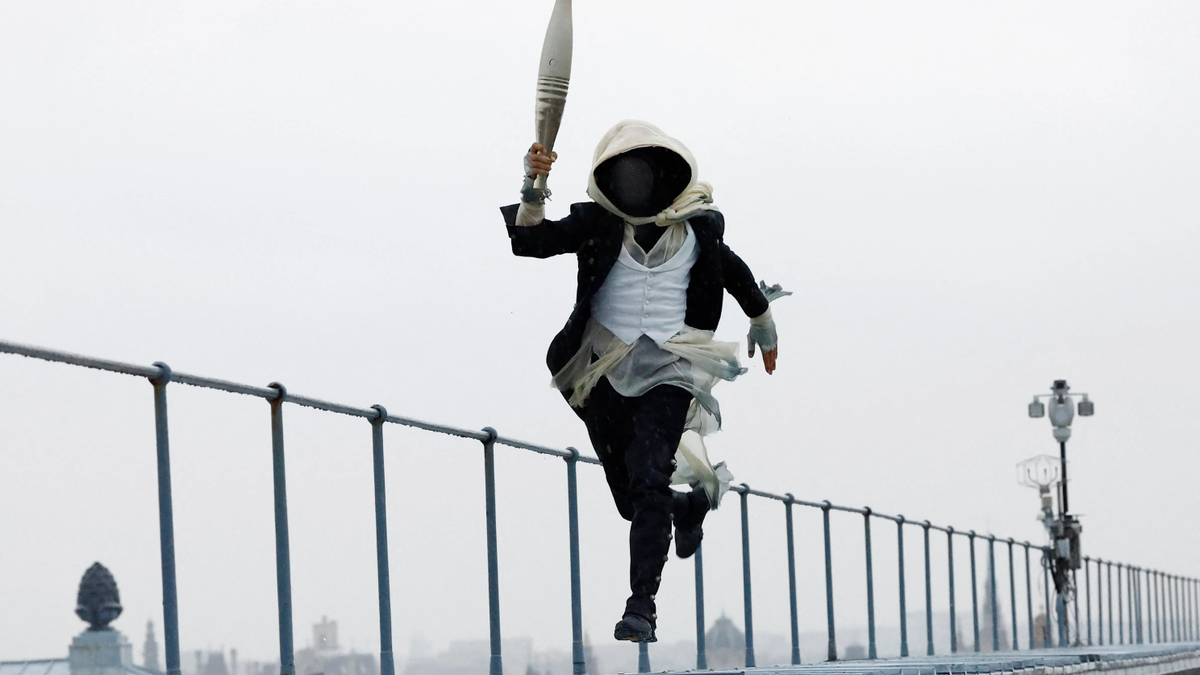Paris 2024 Olympics: France’s love letter to gaming hidden in plain sight

The Olympic Games are a significant mainstay in the global calendar where the world comes together, unified through sportsmanship and competition. As the Paris Summer Olympics draws to a close, the world has played witness to some incredible sporting moments. But so too has it seen the best of global culture, most notably from its host city.
One of the most notable hallmarks of the Olympic Games is the opening ceremony: a moment for the host nation to share its voice with the world through a choreographed expression of its art, culture, and people. For Paris, this was brought to life through an incredibly vibrant and unique production breaking the bounds of the stadium, celebrating the city itself.
The performance, predominantly anchored on and around the River Seine, featured rich journeys through French history, and key cultural beats from fashion to music, to art and film. But underpinning the entire performance was a single character: the anonymous masked torchbearer, whose mission was to bring the Olympic flame to its final destination.
Whilst some commentators were cautious to identify who the mystery figure was—with their signature parkour moves across Parisian rooftops and proclivity for anonymity—gamers across the world undoubtedly channelled their inner Rick Dalton, excitedly pointing at the TV.
Eventually it became clear that this character was drawing reference from the series protagonists of Assassin’s Creed—arguably France’s biggest video game export to the world, now getting its deserved spotlight front-and-centre in one of the biggest global television broadcasts there is. And much like the games themselves, whose narratives bind themselves so deeply with real-world history, the protagonist was prominently serving as a narrative through-line throughout the performance.
France is an important player in the global games market, responsible for shepherding some of the biggest IP in the gaming world—from Prince of Persia and the Tom Clancy series, to Dishonored and Life is Strange. But perhaps none is bigger than Assassin’s Creed: a gaming franchise known the world over, with unit sales spanning over 200 million copies. Notably, it’s also an IP that has been adapted outside of gaming with a live-action theatrical film and an upcoming television series. As gaming brands go, Assassin’s Creed is up there with the best—and since its original outing nearly twenty years ago, it has firmly established itself as a beloved series amassing millions of fans.
On reflection it’s perhaps of little surprise to see the brand celebrated in such a prominent way at the Paris Olympics, given its contribution to global art and culture. But in the moment, it was undoubtedly an incredible demonstration of the respect France holds in the games industry’s contributions to video mainstream global culture (all eyes are, of course, on the closing ceremony this weekend for a Midnight Club-themed handover to LA 2028).
Games are going through something of a mainstream cultural renaissance right now, and are starting to be respected for what they always have been: an artform. One that occupies a truly unique intersection, combining cutting-edge technology with incredible feats of creativity across an almost endless list of disciplines including visual art and design, sound and music, architecture, writing, and engineering.
But as much as the gaming world has traditionally been wanting for the mainstream respect it deserves, it’s way beyond that now. That’s one of the reasons why the sector is expected to cross a staggering half a trillion dollars in revenue next year. As for the rest of entertainment? Well, they’re just playing catch-up.



